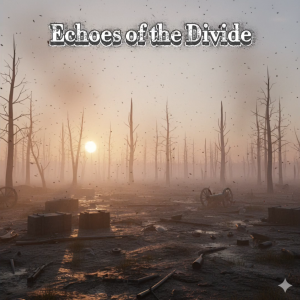As the Olympic Games of 2016 come to an end, one may ponder the origins of such an influential event. It was in 776 B.C.E. when the first Olympic game made its appearance in history. The location is quite interesting on its own, since it was in Olympia, Greece. Olympia is where Greeks would come and honor the gods, and they held several festivals in their honor. The name of the city and game comes from the nearby mountain named Olympos, which was not only the highest mountain in Greece, but it was also once home to the greatest Greek gods and goddesses, according to Greek mythology. The motive for starting such a competition was because Greeks had a deep appreciation for the human body and competition. According to the Greek philosopher Socrates, it is a “disgrace for a man to grow old without ever seeing the beauty and strength in which his body is capable.”1 In addition, the competition provided a platform for establishing a sense of collective identity among the different city-states that competed. Officials and competitors flocked to the events in Olympia, which included foot races, long jumps, boxing, wrestling, and many others. Unlike today’s Games, winners then did not receive gold medals. Instead, olive leave wreaths were given to the winners of the events, and the admiration of their city-states was another plus.2
The games were held every summer, every four years, in Olympia in honor of the mythological god Zeus. The competitors were strictly males from poleis all around the Greek Mediterranean. Those who had the time and money to train and to attend the events were usually from the elite class. For a time women were not only banned from participating in the events, but they were also restricted from watching. One reason for this was that in the boxing and wrestling matches, the contestants were so set on winning that the fights became too bloody to watch.3 In addition to this, the athletes competed covered in olive oil, to emphasize their obsession with the human body. Nevertheless, it was not deemed suitable for women or young audiences to watch. Eventually, after the Greeks saw the influx of people coming in from all parts of the Greek world, they held a festival where only women who were not married could participate. It consisted of mostly foot races and was dedicated to honor the goddess Hera, Zeus’s wife.4

The first and only event for the first thirteen Games was a foot race. Over time, officials added longer and shorter distances to attract more competitors. When more participation from the city-states increased, they added sports such as wresting, the long jump, and discus. Boxing made its appearance not long after in the 18th Olympic Game. One of the rules in the boxing matches was that there was not a time limit or a weight limit, so opponents were essentially chosen at random. Equestrian sports, such as the chariot race, was introduced in 680 B.C.E. Realizing how popular and time consuming the sports had become, officials extended the games to seven days. One reason for this was because the games had more competitions than could be fit in a day or several days. The first day was reserved for honoring the gods in ceremonies, and after the fifth day of competition, the day was reserved to award prizes and to feast.5 To challenge the contestants further, officials added an armored race, which consisted of two grueling laps around the stadium wearing twenty-five pounds of armor. By the end of 580 B.C.E., a whopping fifty events were in motion.
The ancient Olympic Games were very important to the Greeks. Not only did competitors train for years just as athletes do now, but leaders from all around the Greek world journeyed to Olympia for the games. Major leaders from the city-states and beyond went and supported their athletes, while also getting the opportunity to discuss political and economical matters face to face with the other leaders. It was not often that the leaders met face to face. An Olympic truce was called upon athletes and spectators during the games in order to ensure that it was the main concern. Truce bearers traveled to each participating Greek polis and ordered them not to engage in any warfare during the games. 6 One reason for this was that Greeks rarely agreed on anything political or economical, so the truce forced them to oblige. Bringing home a champion from the games was considered a very high and honorable award. It brought prestige and pride to their polis, and it connected them to each other in a way nothing else could. Athletes did not compete for the prizes they won; they competed for the fame and glory of being the victor.
Despite all of its glory and fame, the last Olympic game was held in 393 C.E. when Emperor Theodosius banned the games by claiming they were “pagan acts.” 7 Twelve glorious centuries of the games inspired many aspects of life in Greece from religion to literature. Literature and sculpting competitions were a part of the Olympic games, and it gave many artists a platform to debut their talents to larger audiences. Religion in ancient Greece was devoted to the worship of mythological gods and goddesses, and so the games became extensions of their religious practices honoring their mythological gods. It took 1500 years for the games to be revived again after 393 C.E. After the reestablishment of the games it was evident that the motives remain the same in appreciating the marvels of the human body and competition.
- Tom Griffith, Essential Thinkers – Socrates (New York: Barnes & Noble Books, 2004), 128. ↵
- Jerry Bentley, Herbert Ziegler, and Heather Streets Salter, Traditions & Encounters: A Brief Global History Volume 1, 4 edition (New York: McGraw-Hill Education, 2015), 144. ↵
- Judith Swaddling, The Ancient Olympic Games, Second Edition (Austin: University of Texas Press, 2000), 78. ↵
- Swaddling, The Ancient Olympic Games, 43. ↵
- Swaddling, The Ancient Olympic Games, 53. ↵
- Swaddling, The Ancient Olympic Games, 11. ↵
- Salem Press Encyclopedia, January 2015, s.v. “Olympic Games in the Ancient World,” by Thomas J. Sienkewicz. ↵



84 comments
Meadow Arriaga
I never thought about where the Olympic Games started from prior to reading this article. It never crossed my mind just how long this has been a tradition. The city where it started is in its name, Olympia, Greece itself, yet I am just learning this now. I think it’s beautiful that part of the reason for this competition was to admire the human body.
Brandon Torres
Having watched various Olympic events on television throughout the years, I never knew this much history existed in this ear-old event! I really loved how the author focused on joining the fact that just as (almost) everyone comes to compete for the medals and such, as did various competitors in the olden ages! This parallel really made me see these events as not so different, even though the name remained the same, and so did the principle! I also enjoyed how although this remarkable event was celebrated, it still had negative connotations around the end times regarding Emperor Theodosius.
Jose Chaman
This article is very informative. It is interesting how many of us attend these world-class events without questioning their origins. For example, I did not know that the name comes directly from the city of Olympia, nor that the first competition for thirteen consecutive games was foot race. Even it seems really incredible that during the first Olympic games thousands of athletes from other nations attended!
Kasandra Ramirez Ferrer
I’ve always known the Olympics and have watched movies about them now and then, I also know how and where they formed but only the basic part of it. This article is really good and it shares the purpose of the Olympics since they were formed and how important they were considered around all the Greek world. It’s good that the games were reestablished with the same motives people used the first time.
Sydney Hardeman
I always find it interesting reading about things that have evolved tremendously over time. The Olympic Games, as we know them today trace all the way back to Ancient Greece, as they loved to compete and win and show off their strength and endurance, while honoring their gods. It is an interesting piece of history to learn about and this article does a great job of describing the games.
Juan Arceo
I absolutely enjoyed this article about the origin of the Olympics. I knew that the Olympics were around for a long time, but never realized that they were discontinued for some time. It is fascinating to see how far they have come from even the smallest of details such as rubbing olive oil on your body. It is just a matter of time until we either get a new event added or we get some twist to the already infamous Olympic games.
Gabriella Urrutia
This article was very informative and it was interesting to read about how the olympics began. It was interesting to learn that it was created because the Greeks wanted to honor their gods and admire the human body. I enjoyed learning about how it started as a small competition and developed into something much larger.
Jake Mares
Interesting article. It is cool to see the origin of something I really enjoy every couple of years. I know the Greeks were big on competition and this is a direct representation of that. It is weird to think that the games took so little time compared to now which the Olympics takes a good month to complete.
Roberto Rodriguez
It is interesting how we as a species have always been extremely competitive, that is further exemplified from Olympic Games. The early Olympic Games sound extremely exciting and competitive, it was probably really intense as well when taking into consideration that they completed to honor the gods. I am extremely happy that we have kept the tradition going throughout the years, because I find a lot of joy in seeing how much respect all the athletes have for each other and how much passion they have for their sport and country. It is kind of a symbol of world peace for me and gives me faith that we can all have peace with each other while simultaneously competing with each other.
Charli Delmonico
This article was so engaging from the beginning to the end. I had no idea that the Olympic Games date back so far, and I’m impressed with how modern the events seemed to be at the time. I love that we have kept the tradition going, and it shows how connected we are to ancient times. I can’t imagine how angry everyone must have been when the Olympics were banned because a ruler decided that it seemed like a pagan activity, especially since people would train for years to compete.